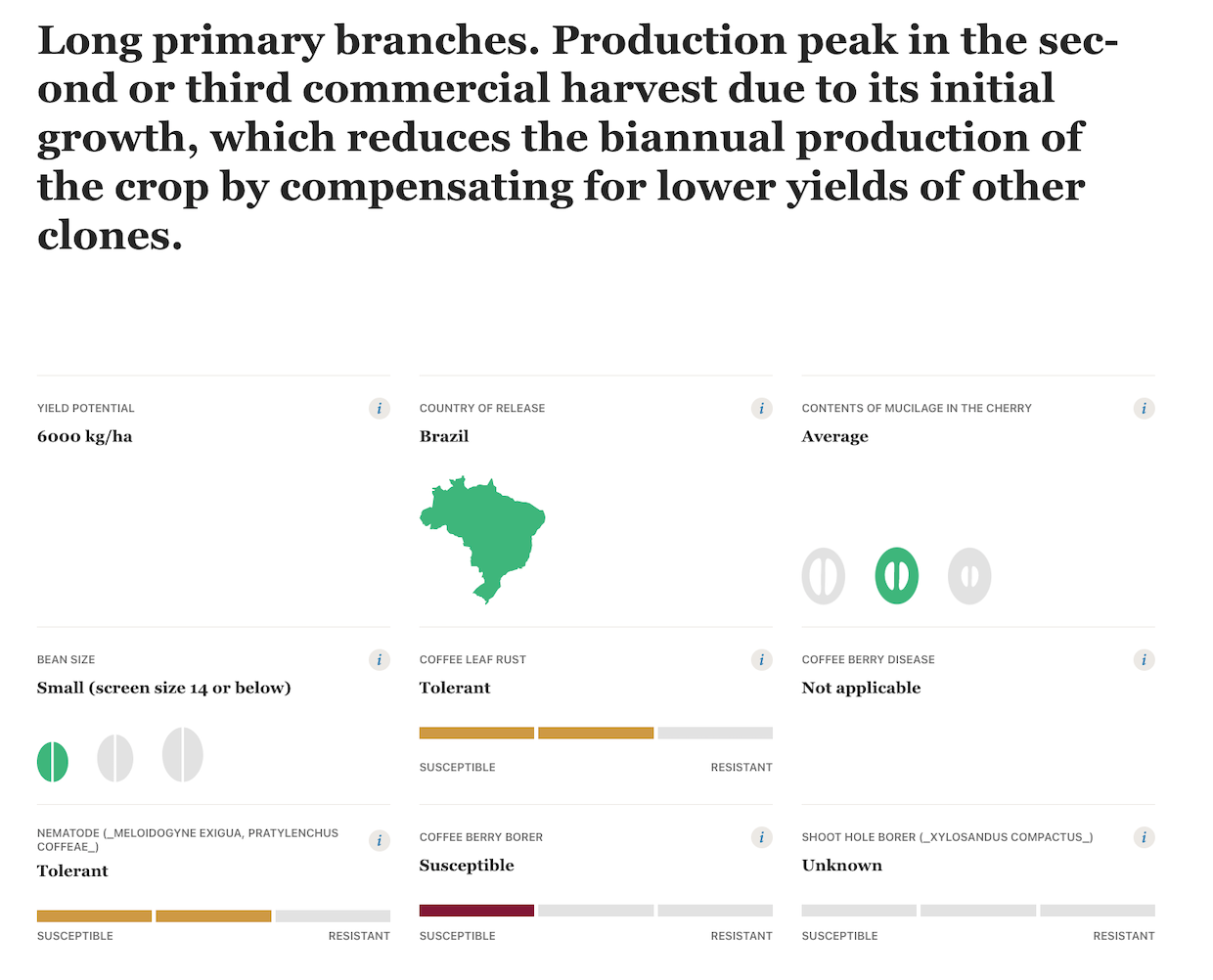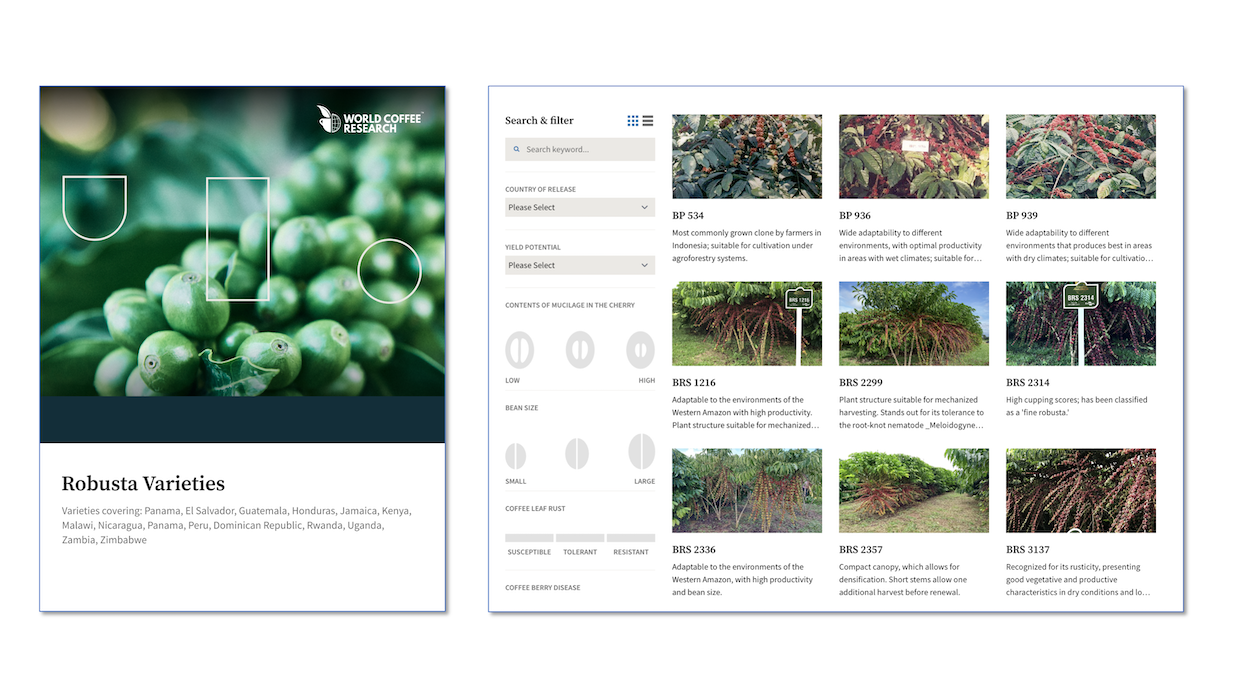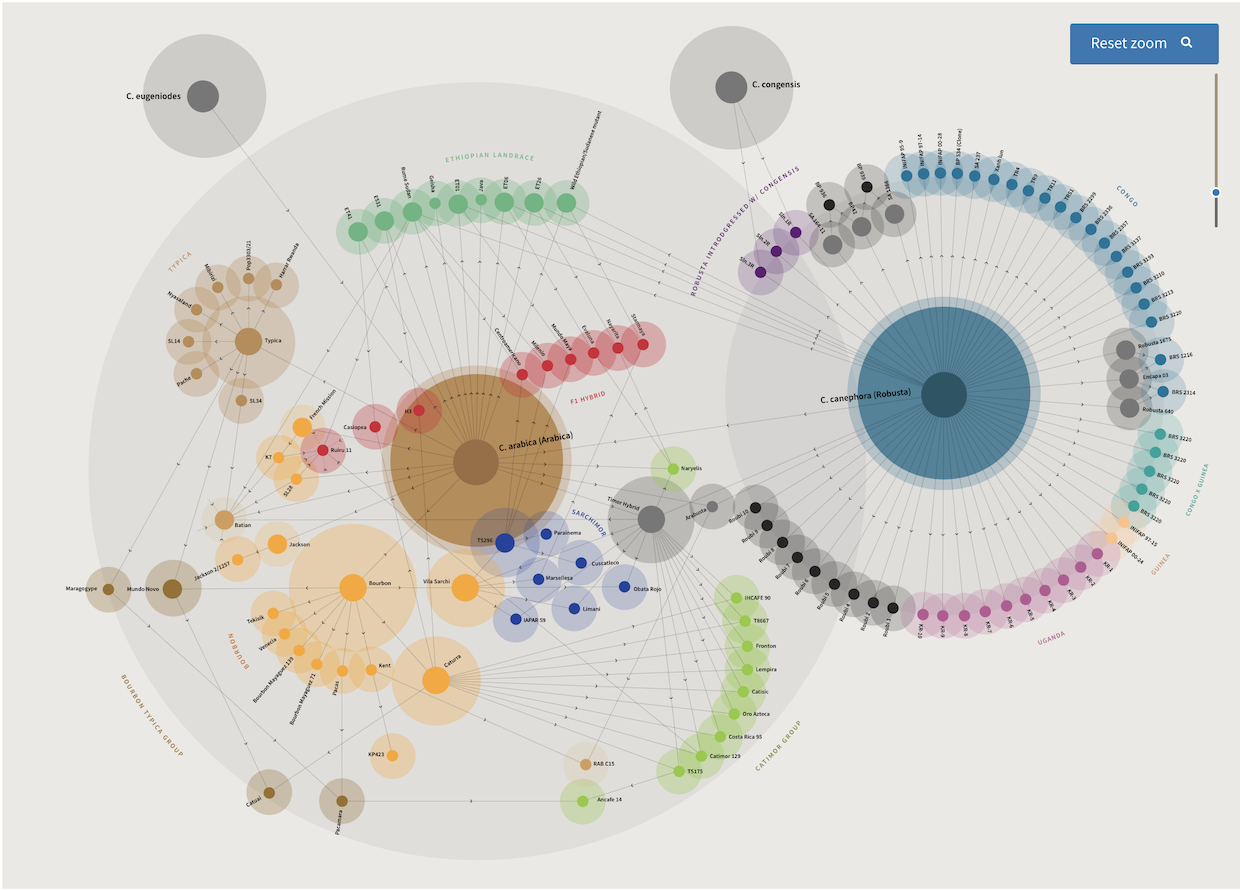Citing robusta’s “growing prevalence in the global market,” the nonprofit World Coffee Research today released the Robusta Variety Catalog.
Available for free online in English and Spanish, the catalog profiles 47 different varieties of the robusta coffee species. It comes nearly seven years after WCR published its groundbreaking Arabica Coffee Varieties Catalog.
Now published side by side, both catalogs are designed as free tools for use by farmers or “other planting decision-makers.” As WCR noted in an announcement today, the life of a coffee tree typically spans decades, meaning all planting decisions have long-term consequences.
“Since our founding over ten years ago, WCR has worked to empower farmers by making tools available to choose the right varieties for their farms and their markets — varieties that deliver high yield and better-tasting coffee in the long term,” said WCR CEO Jennifer “Vern” Long. “And, now that robusta comprises 40% of the coffee produced and marketed globally, we saw the need to support farmers by creating this tool.”
One of approximately 130 coffee species known to mankind, robusta sits alongside arabica as one of two species that are commercially cultivated on a global scale. Robusta accounted for 37% of global green coffee exports in the year ending August 2022, according to International Coffee Organization statistics. Statista has estimated that robusta will account for 40-45% of global production in the 2022/23 crop year.
“Until recently, arabica held reign over most of the coffee market due to preferences for its beverage quality, but various factors, including the increasing demand and climate pressure for farmers, have led to expansions in the production of robusta,” WCR stated today.
The group’s Robusta Variety Catalog includes varieties that are currently being cultivated in coffee-producing countries such as Vietnam, Brazil, Indonesia, Uganda and Mexico. The Guide shows more than 20 variables in each variety profile, including yield potential, stature, bean size, plant nutrition requirements, pest/disease susceptibility and more.

A portion of the profile page for a single robusta variety, BRS 3193. Screenshot from https://varieties.worldcoffeeresearch.org/robusta
WCR said that the guide is not intended to be comprehensive in its number of varieties, and that there are significant global gaps in data regarding robusta. The 47 varieties profiled in the publication were chosen for their economic, historical, cultural or genetic importance, according to WCR.
Organizations contributing data and research for the catalog included India’s Central Coffee Research Institute
(CCRI), the Indonesian Coffee and Cocoa Research Institute (ICCRI), the Brazilian Agricultural Research Corporation (EMBRAPA), the National Coffee Research Institute of Uganda (NaCORI-Uganda), Vietnam’s Western Highlands Agroforestry Science Institute (WASI), and the global Nestlé Research Center.
See WCR’s variety catalogs here.
Does your coffee business have news to share? Let DCN’s editors know here.
Nick Brown
Nick Brown is the editor of Daily Coffee News by Roast Magazine.








Comment